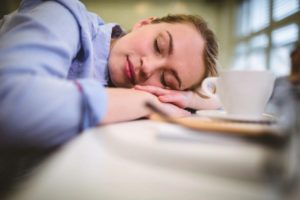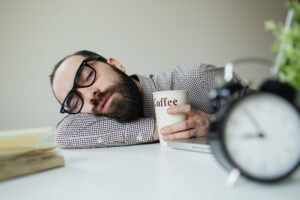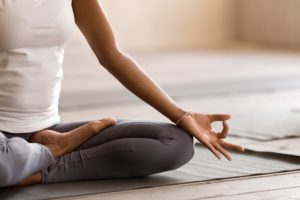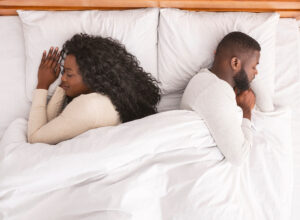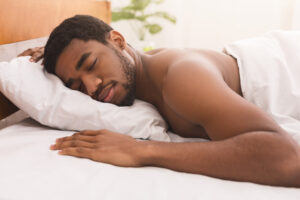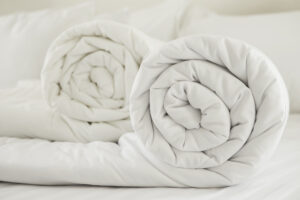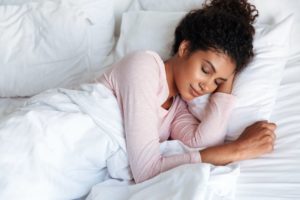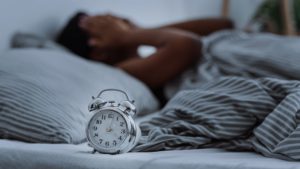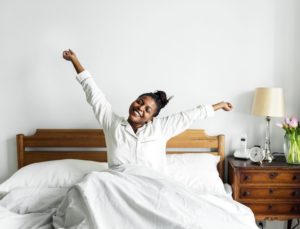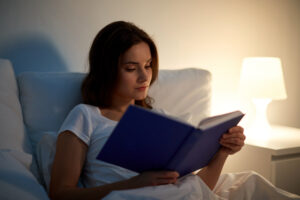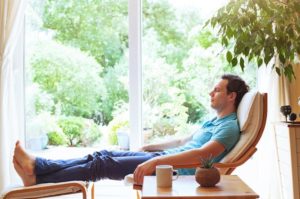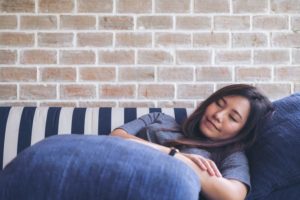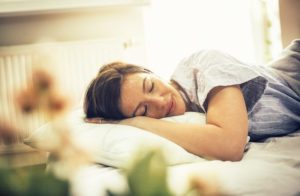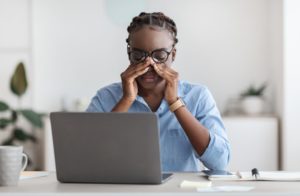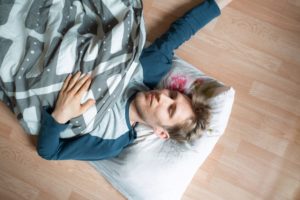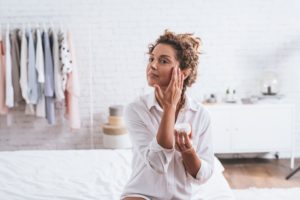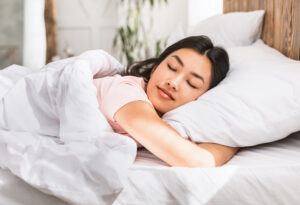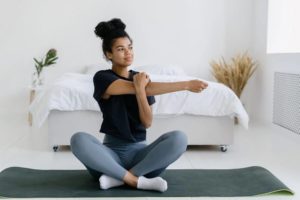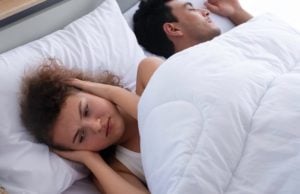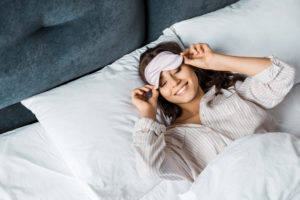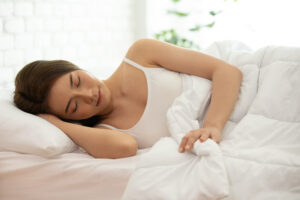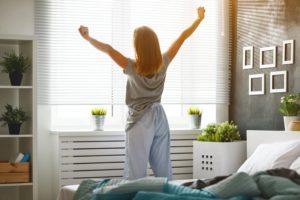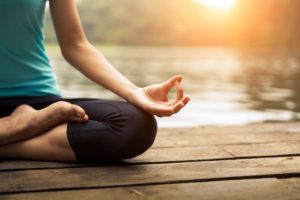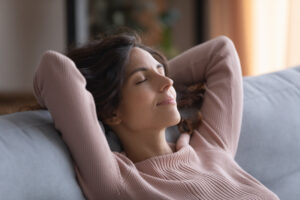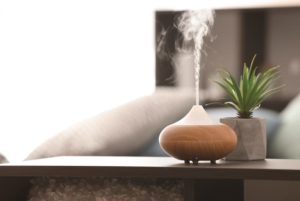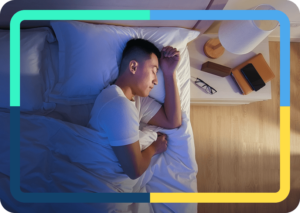How to Sleep Longer
The importance of sleep cannot be understated. Getting enough sleep helps you stay healthy, feel mentally and physically better, and wake up feeling refreshed and ready to take on the day.
We cover changes you can make during the day and before bed to help you sleep better and longer.
Schedule Your Nighttime Routine
Going to bed earlier may increase the number of hours a person sleeps while still allowing them to begin their day on time. That said, it’s important not to spend more time in bed than the recommended hours of sleep each night.
Setting a bedtime routine could ease the transition to an earlier bedtime. To fall asleep easier, be sure to keep a consistent bedtime and wake up around the same time each day. It’s also helpful to include relaxing activities, such as reading a book, listening to music, or other forms of self-care.
“Figure out your “slumber number” by letting yourself naturally fall asleep and wake up naturally without the alarm and you will know what your number of required hours of sleep is. It does take a week to two weeks to figure this out.”
Dr. Abhinav Singh, Sleep Physician
Get Enough Light Exposure
Getting plenty of light exposure during the day can improve nighttime sleep. This is because light stimulates the body’s internal clock that controls a person’s circadian rhythms, including when they feel alert and when they feel sleepy.
Spending at least 30 minutes in bright light each day, especially after first waking up in the morning, may keep the body’s circadian rhythms on track for the rest of the day and improve sleep at night.
Reconsider Sleeping With a Pet
Sleeping with a cat or dog may be a good way to bond with a pet, but nighttime movements can also disrupt sleep.
Pet owners may find it helpful to make sure pets don’t sleep on the bed or keep them out of the room altogether. People with allergies to animal dander should also consider keeping pets out of the bedroom to limit their exposure to pet allergens. Animal dander may cause sleep-disruptive respiratory symptoms in people with allergies.

Keep Naps Early in the Day
Setting healthy parameters around napping may help people build healthy sleep habits. Napping for a short time can be a helpful way to feel more alert when tired during the day, but napping late in the afternoon can affect a person’s ability to get quality sleep at night.
Be sure to limit naps to around 20 minutes and avoid taking naps past 3 p.m.
Avoid Alcohol, Nicotine, and Caffeine Near Bedtime
Since alcohol, nicotine, and caffeine can interfere with sleep, it’s best to avoid them too close to bedtime.
Drinking alcohol before bed may make people fall asleep more quickly, but it reduces the quality of their sleep and leads to more nighttime awakenings, especially later in the night.
Nicotine and caffeine are stimulants that can make it harder to sleep. Using tobacco or other nicotine products too close to bedtime can make it challenging to sleep consistently throughout the night. Caffeine can make it difficult to fall asleep, so sleepers should consider stopping caffeine consumption by early afternoon.
“It is nearly impossible to sleep longer by trying harder. What one can do is make sure their external environment (light, temperature, noise) and internal environment (mind and body) are in the best state for a restful night of sleep.”
Dr. Abhinav Singh, Sleep Physician
Get Regular Exercise
Staying active during the day can help people stay asleep longer and get more high-quality rest. The best time to exercise is still an open question. While some studies have found that exercising too close to bedtime can make it more difficult to sleep, other studies have found that exercising within three hours of bedtime may promote better sleep.
Maintaining a consistent exercise routine may increase the sleep-related benefits of physical activity. Experts recommend spending at least 30 minutes on most days doing something active, like walking or playing a sport.
Get Blackout Curtains
Those who work a night shift or who want to stay asleep longer may benefit from preventing morning sunlight from entering their bedroom. This is because sunlight exposure first thing in the morning can make people feel more awake. Alternatively, wearing an eye mask to bed can block the stimulating effects of light.

Still have questions? Ask our community!
Join our Sleep Care Community — a trusted hub of sleep health professionals, product specialists, and people just like you. Whether you need expert sleep advice for your insomnia or you’re searching for the perfect mattress, we’ve got you covered. Get personalized guidance from the experts who know sleep best.
References
4 Sources
-
DeShazo, R. & Kemp, S. (2022, April 26). Allergic rhinitis: clinical manifestations, epidemiology, and diagnosis. In J. Corren (Ed.). UpToDate., Retrieved May 22, 2023, from
https://www.uptodate.com/contents/allergic-rhinitis-clinical-manifestations-epidemiology-and-diagnosis -
A.D.A.M. Medical Encyclopedia. (2017, April 26). Healthy sleep. MedlinePlus., Retrieved May 22, 2023, from
https://medlineplus.gov/healthysleep.html -
Kredlow, M. A., Capozzoli, M. C., Hearon, B. A., Calkins, A. W., & Otto, M. W. (2015). The effects of physical activity on sleep: A meta-analytic review. Journal of Behavioral Medicine, 38(3), 427–449.
https://pubmed.ncbi.nlm.nih.gov/25596964/ -
A.D.A.M. Medical Encyclopedia. (2022, May 12). Changing your sleep habits. MedlinePlus., Retrieved May 22, 2023, from
https://medlineplus.gov/ency/patientinstructions/000757.htm



